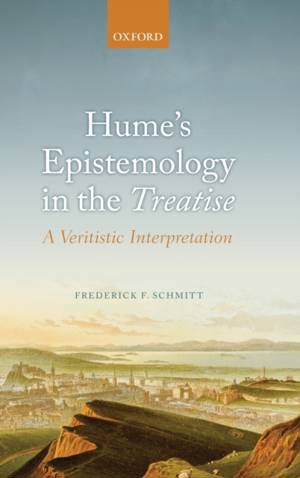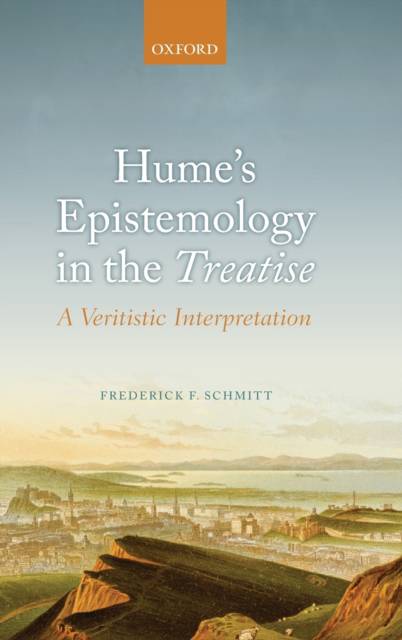
- Afhalen na 1 uur in een winkel met voorraad
- Gratis thuislevering in België vanaf € 30
- Ruim aanbod met 7 miljoen producten
- Afhalen na 1 uur in een winkel met voorraad
- Gratis thuislevering in België vanaf € 30
- Ruim aanbod met 7 miljoen producten
Zoeken
Hume's Epistemology in the Treatise
A Veritistic Interpretation
Frederick F. (Indiana University) Schmitt
Hardcover
€ 133,95
+ 267 punten
Omschrijving
Frederick F. Schmitt offers a new account of Hume's epistemology in A Treatise of Human Nature, which alternately manifests scepticism, empiricism, and naturalism. Critics have emphasised one of these positions over the others, but Schmitt argues that they can be reconciled by tracing them to an underlying epistemology of knowledge and probability.
Specificaties
Betrokkenen
- Auteur(s):
- Uitgeverij:
Inhoud
- Aantal bladzijden:
- 444
Eigenschappen
- Productcode (EAN):
- 9780199683116
- Verschijningsdatum:
- 30/01/2014
- Uitvoering:
- Hardcover
- Afmetingen:
- 234 mm x 165 mm
- Gewicht:
- 814 g

Alleen bij Standaard Boekhandel
+ 267 punten op je klantenkaart van Standaard Boekhandel
Beoordelingen
We publiceren alleen reviews die voldoen aan de voorwaarden voor reviews. Bekijk onze voorwaarden voor reviews.








